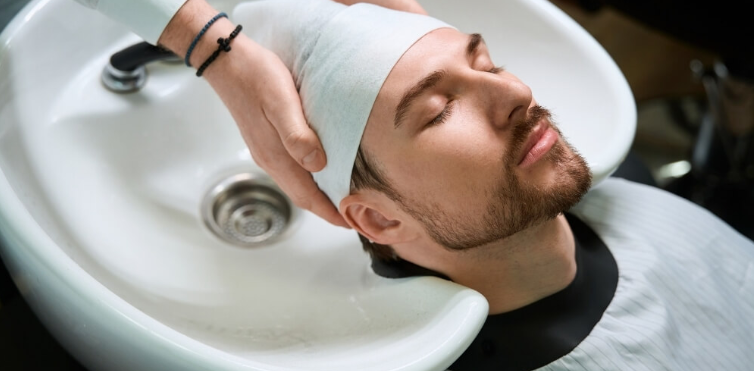Undergoing a hair transplant is a significant step toward restoring hair density and confidence. Post-operative care plays a crucial role in ensuring the success and longevity of the transplant. One common aspect of aftercare is the application of oils to the scalp. This article delves into the benefits of using oils after a hair transplant, the appropriate timing for their application, and expert opinions from dermatologists in Pakistan and the USA.
The Importance of Post-Transplant Scalp Care

After a hair transplant, the scalp requires meticulous care to promote healing and support the growth of transplanted follicles. Proper aftercare minimizes the risk of infection, reduces inflammation, and ensures the best possible environment for hair regrowth. Incorporating suitable oils into your post-transplant regimen can provide additional nourishment and protection to the scalp and hair.
Benefits of Using Oils After Hair Transplant
Applying natural oils to the scalp post-transplant offers several advantages:
- Moisturization: Oils help maintain scalp hydration, preventing dryness and flakiness that can impede healing.
- Anti-Inflammatory Properties: Many oils possess anti-inflammatory qualities that can soothe the scalp, reducing redness and irritation.
- Antioxidant Benefits: Oils rich in antioxidants protect the scalp from oxidative stress, promoting a healthier environment for hair growth.
- Enhanced Blood Circulation: Massaging oils into the scalp can stimulate blood flow, ensuring that hair follicles receive essential nutrients.
Recommended Oils for Post-Transplant Care
Several natural oils are beneficial for scalp care after a hair transplant:
1. Argan Oil
Derived from the kernels of the argan tree native to Morocco, argan oil is rich in fatty acids and vitamin E. These components deeply moisturize the hair and scalp, support scalp health, and create a protective barrier against damage. While there's no large-scale evidence proving argan oil accelerates hair growth, its moisturizing properties can help maintain a healthy scalp, crucial for hair growth. Argan oil is particularly beneficial for thick, curly, or dye-damaged hair but may weigh down fine hair.
2. Rosemary Oil
Rosemary oil has gained popularity as a natural remedy for hair growth and health. Some studies suggest its effectiveness is comparable to commercial products, such as minoxidil (Rogaine). It works by improving blood flow to the scalp and blocking the effects of certain testosterone types that shrink hair follicles, which may help with conditions like androgenic alopecia. Additionally, it might prevent premature graying and reduce dandruff due to its anti-inflammatory properties.
3. Coconut Oil
Coconut oil is renowned for its penetrating properties, allowing it to moisturize hair strands effectively. Its antibacterial and antifungal properties can help prevent infections on the scalp. Regular application can reduce protein loss in hair, strengthening the strands and promoting a healthier appearance.
4. Castor Oil
Castor oil is rich in ricinoleic acid, which has anti-inflammatory properties. It provides numerous benefits to hair, including hydration, strengthening, and hair growth. Applying castor oil after a hair transplant can nourish the scalp and strengthen hair strands.
Expert Opinions
Dr. Azim Jahangir Khan, Pakistan
Prof. Dr. Azim Jahangir Khan is an American-qualified dermatologist, laser, hair transplant, and cosmetic surgeon in Pakistan. He is board-certified by the American Board of Internal Medicine and the American Board of Dermatology.
Dr. Khan emphasizes the importance of gentle scalp care post-transplant. He recommends using natural oils like argan, sesame, or coconut oil to nourish the scalp. He also advises using mild shampoos made from natural ingredients to maintain scalp health.
Dr. Rina Allawh, USA
Dr. Rina Allawh is a board-certified dermatologist who performs adult and pediatric medical dermatology, skin cancer treatment, and cosmetic dermatology. She has a unique interest in skin of color, focusing on treating conditions like hidradenitis suppurativa (HS), hyperpigmentation, acne, and psoriasis in persons of color.
Dr. Allawh highlights the benefits of using oils with antimicrobial properties, such as rosemary oil, to maintain scalp health post-transplant. She advises that while scalp oiling can have benefits, it is not the most effective standalone treatment for hair loss. Proper use is crucial to avoid potential side effects like allergic reactions or clogged follicles. For significant hair loss, consulting a dermatologist for a comprehensive treatment plan is recommended, with scalp oiling as a complementary option rather than a primary solution.
Timing and Application of Oils Post-Transplant

The timing of oil application after a hair transplant is crucial:
- Initial Weeks: It's advisable to avoid applying oils immediately after the procedure to prevent any potential interference with the healing process. Most surgeons recommend waiting at least two weeks before introducing oils.
- After Two Weeks: Once the initial healing phase has passed, oils can be introduced gradually. Start with light applications, observing how your scalp responds.
- Application Technique: Warm a small amount of your chosen oil to enhance absorption. Gently massage it into the scalp using circular motions, which can also stimulate blood circulation.
Conclusion
Choosing the right oil after a hair transplant can play a supportive role in ensuring a healthy scalp and promoting hair growth. Natural oils such as argan, rosemary, coconut, and castor oil offer various benefits, including hydration, scalp nourishment, and enhanced blood circulation. However, their use should be introduced at the right time—typically after two weeks post-transplant—to avoid disrupting the healing process. By selecting the right oil and following proper application techniques, you can improve the health of your scalp and maximize the results of your hair transplant for long-lasting, natural-looking hair.
